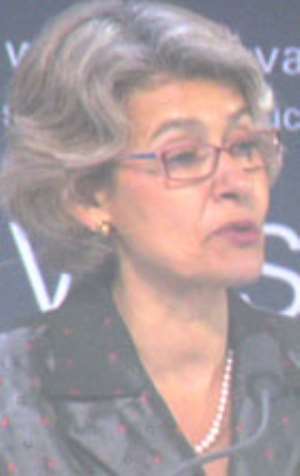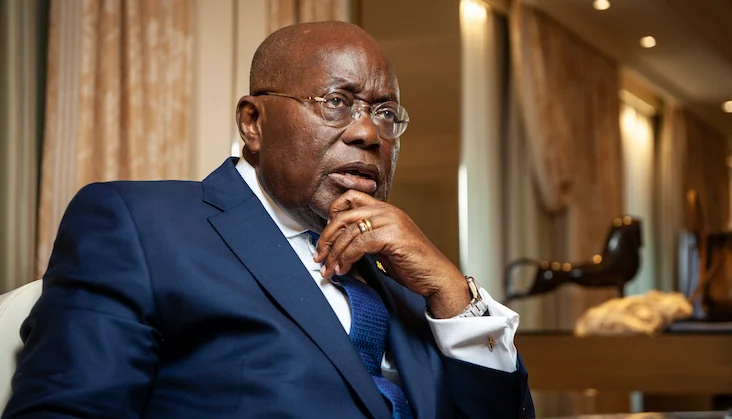
THE UNITED Nations Educational, Scientific and Cultural Organisation's (UNESCO) global monitoring report on education for 2010, suggests that even if developing countries maximised their own resources, there would still be an annual gap of $16 billion for low-income countries to reach the education for all agenda.
To avert such situations, however, Irina Bokova, UNESCO's Director-General, has called on governments to rather create the enabling environments for learning, provide incentives for quality teaching, reach out to the vulnerable, and adapt curricula and pedagogies to a fast-changing world.
Addressing over 1,200 participants of the second edition of the World Innovation Summit for Education (WISE) in Doha, Qatar, last Wednesday, on funding education, she maintained, 'The better the learning outcomes, the more attractive education becomes.'
Donors, Mrs. Bokova continued, ought to fulfill every commitment they had made to fund education for all in the compact agreement of 2000.
She indicated that governments might as well consider reviewing the overall allocation of funds to tackle the educational needs, from early childhood and primary to secondary, higher education and research.
'Governments may consider also, earmarked taxes such as training levies for vocational education on the private sector,' she said, and expressed hope that new resources would still be found to complement traditional forms of financing.
'In addition to multi-stakeholder partnerships, the idea of a levy, for instance, of 0.005 percent on transactions between four major currencies, could be exploited. This could raise US$30 billion a year.'
WISE is a global, groundbreaking collaborative initiative, established by the Qatar Foundation, under the patronage of Her Highness Sheikha Mozah Bint Nasser Al-Missned, and seeks to monitor and contribute to 21st Century challenges, and their impact on education.
The Qatar Foundation was founded in 1995 by a decree of His Highness Sheikh Hamad Bin Khalifa Al Thani, Emir of Qatar. It is a non-profit organisation, which focuses on education, scientific research, and community development.
Again, this year's WISE event brought together leading thinkers and practitioners from academic institutions, the public sector, international organisations, private corporations, and the voluntary sectors from over 100 countries.
The aim of the event is to raise the status of education as a topical world issue, seek new ways to improve both access and quality, and inspiring practical initiatives, which would make a real difference to the lives of people across the globe.
Mrs. Bokova believed that areas of innovation, which could stimulate sustainable economic and 'green' growth, include literacy, information and communication technologies in education, technical and vocational education and training, and that should be targeted by additional resources.
'We have to make a more compelling case for education as the way to invest out of the crisis. I will take this message to Davos in January and to Thailand for the 10th High-level group meeting on education for all in March,' the Director-General stressed, while exploring tangible proposals for innovative financing.
Consequently, she said it would be brought to the floor of next year's G8 and G20 summits, and the July annual ministerial review of the United Nations Economic and Social Council.
Mrs. Bokova further argued that decisions taken today, laid the foundations for the century ahead, because the cost of insufficient funding for education in recent times, would be high for generations to come. Undoubtedly, she explained, that would fall on individuals, and would be carried by societies as a whole.
Statistical reports showed that there were 69 million children, who were out of primary school in 2007, and about the same number of adolescents out of secondary school.
Less than 40 per cent of countries, according to the report, provided girls and boys with equal access to education, but in Africa, disparities had increased at the secondary level over the last decade.
In sub-Saharan Africa, the UNESCO boss noted that almost 12 million girls may never enroll in school, and even millions of children, who get the opportunity, leave school without having acquired basic skills, due to lack of teachers.
'Aid disbursements to basic education have stopped increasing for the first time since 2000, stagnating at US$4.7 billion. In 2008 aid to sub-Saharan Africa actually decreased,' she emphasised.
While public-private partnerships could also unlock new funds for education, citing a 5-year joint venture with NOKIA, to use mobile technology as a way to increase access to quality learning, she again, urged governments to create a venture fund for investment in innovative education.
According to her, between 2002 and 2008, there was an average of nine per cent gap between commitments and disbursements for Africa by donors, and this had brought about unfavourable conditions to the Education for All Fast-Track Initiative.
On his part, the World Bank Sector Director, Steen Jorgensen, said the forward march would include a shift in focus, placing premium on building of more schools, and building the capacity of teachers
He also outlined protection of education budgets, value for money, and future financing as the three key principles for funding the education sector, as stated at the global summit.
Mr. Jorgensen also argued that 'if policies and regulations were adjusted to allow more private sector participation in education provision and financing, private investment in this sector would grow.'




 Mahama was a one-term president because he was incompetent and brought untold ha...
Mahama was a one-term president because he was incompetent and brought untold ha...
 Shortage of ‘bentua’ hits Accra Central Market
Shortage of ‘bentua’ hits Accra Central Market
 Blame IMF programme for Cedi's decline —Prof Bokpin
Blame IMF programme for Cedi's decline —Prof Bokpin
 Court denies Kasoa soldier killer bail
Court denies Kasoa soldier killer bail
 All crooked deals are cooked at Jubilee House – Franklin Cudjoe
All crooked deals are cooked at Jubilee House – Franklin Cudjoe
 Don’t be tricked by Mahama’s rebranding move – Richard Ahiagbah to Ghanaians
Don’t be tricked by Mahama’s rebranding move – Richard Ahiagbah to Ghanaians
 Petition against Kissi Agyebeng not surprising – Justice Srem Sai
Petition against Kissi Agyebeng not surprising – Justice Srem Sai
 Akufo-Addo’s handling of petitions against top officials disappointing – Justice...
Akufo-Addo’s handling of petitions against top officials disappointing – Justice...
 Osino: ‘Sleeping’ tipper truck driver runs into building
Osino: ‘Sleeping’ tipper truck driver runs into building
 Ahmed Suale's killers will be brought to justice no matter how long it takes - A...
Ahmed Suale's killers will be brought to justice no matter how long it takes - A...
